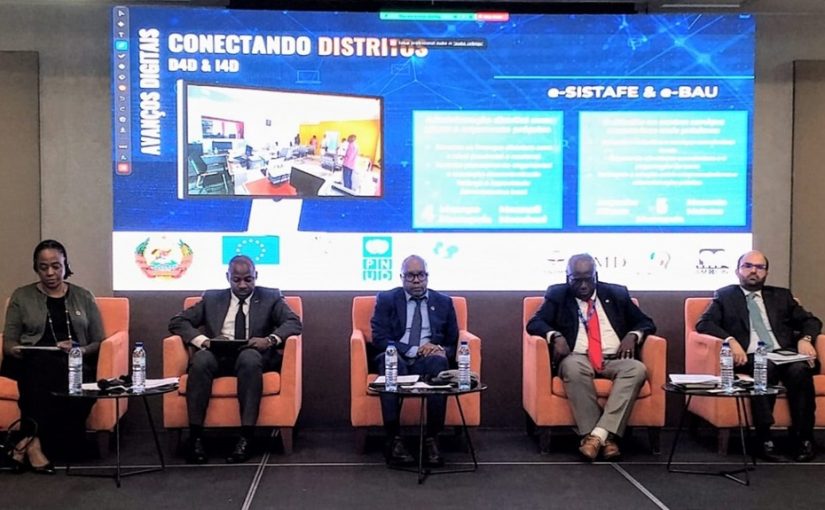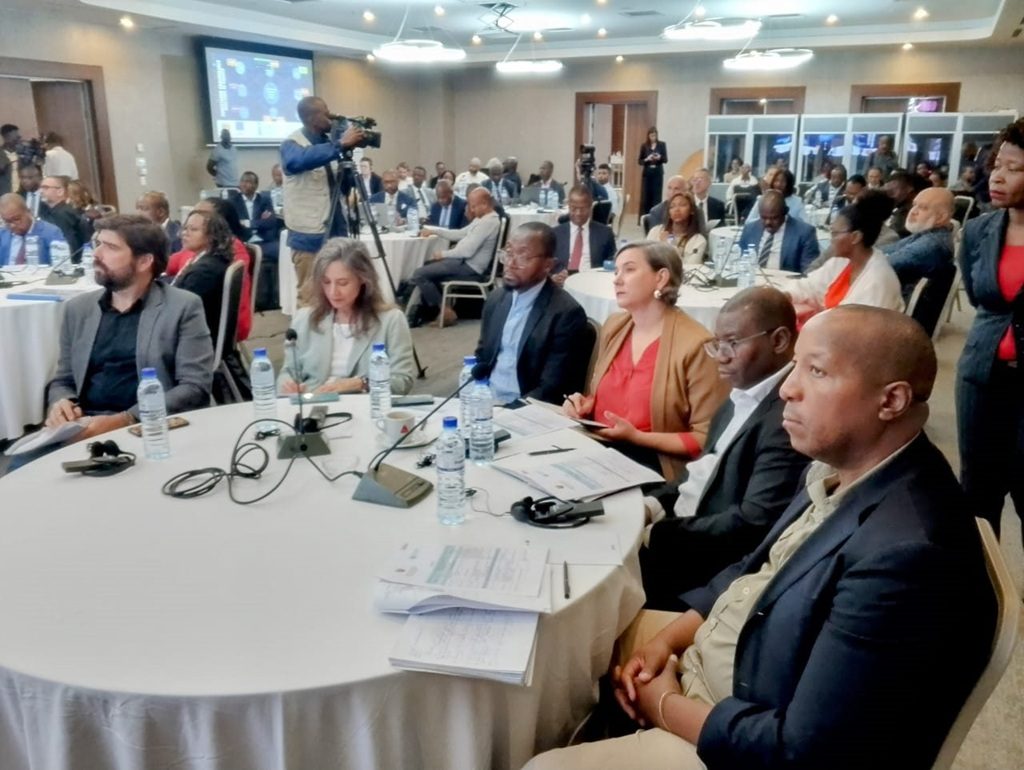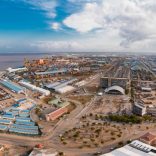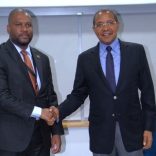Mozambique: Beira Port access road concessioned to Revimo
Mozambique reinforces commitment to inclusive digitalization at international conference

Photo: Notícias
Mozambique’s Minister of Communications and Digital Transformation, Américo Muchanga, officially opened the International Conference on Digitalization for Inclusive Communities in Maputo on Friday, a high-level platform that brings together representatives from the government, international organizations, the private sector, academia and civil society. The ceremony was also attended by the Minister of State Administration and Public Service, Inocêncio Impissa, and the United Nations Resident Coordinator in Mozambique, Catherine Sozi.
In his opening address, Américo Muchanga named digitalization as a strategic and cross-cutting priority in the current 2025–2029 government cycle, with a direct impact on wealth creation, job creation and improving the quality of life of citizens. In this context, he highlighted the recent creation of the Ministry of Communications and Digital Transformation, by means of Presidential Decree No. 1/2025, as a reflection of the government’s determination to lead a targeted, inclusive and sustainable digital transformation.
He also highlighted the progress that Mozambique has been making in adopting digital solutions in the public sector, referring to the implementation of platforms such as the government portal, electronic service booking systems, e-Sistafe, e-Visa, the Social Security information system and other mechanisms that, he said, were contributing to making public administration more efficient, transparent and citizen-centred.
However, he acknowledged that widespread digitalisation brings with it new challenges, particularly in the areas of cybersecurity, data protection and digital exclusion. He therefore stressed the importance of building a resilient and trustworthy digital ecosystem, where citizens’ rights are protected. To this end, he mentioned the creation of the National Cybersecurity Incident Response Team (CSIRT), the establishment of sectoral CSIRTs and the launch of the Safe Internet Centre as decisive steps in this direction.
At the same time, the minister announced the ongoing development of a set of strategic instruments – including the National Digital Transformation Strategy, the Digital Government Strategy, the National Artificial Intelligence Strategy and the Data Governance Policy – which, taken together, aim to align public policies with the dynamics of the digital world.
The production of these documents has the support of partners such as the World Bank, UNESCO, UNECA and the African Union, which, he said, demonstrates the government’s commitment to a structured digital transformation based on multilateral cooperation.
In turn, the Minister of State Administration and Civil Service, Inocêncio Impissa, reinforced the executive’s vision that digitisation should be seen as an essential vector for administrative reform and the modernisation of the state. In this regard, she argued that the digital transformation of public services needs to be accompanied by a restructuring of internal processes, especially in local bodies, to ensure that speed, flexibility, transparency and inclusion translate into real benefits for citizens.
In concrete terms, Impissa identified persistent gaps in districts, localities and administrative posts, particularly in access to technological infrastructure, connectivity and digital literacy. In fact, she reiterated her ministry’s commitment to accelerating administrative reforms, combating delays and introducing innovative solutions that respond to the real needs of the population.
In the same vein, Catherine Sozi, United Nations Resident Coordinator in Mozambique, praised the government for its unequivocal commitment to digital transformation as a driver of inclusion and development. She highlighted, in particular, the progress made in expanding the population’s access to the internet and essential digital services, stating that these achievements demonstrate a clear alignment with the UN Sustainable Development Goals (SDGs), especially with regard to equity, innovation and institutional strengthening.
In conclusion, Sozi reaffirmed the United Nations’ commitment to continue supporting Mozambique in consolidating a robust, ethical and accessible digital ecosystem for all, recognizing that digitalization, when well-directed, has the power to reduce inequalities and positively transform communities.
The conference will continue with thematic sessions and multi-sectoral debates, with the presentation of concrete recommendations and proposals that will contribute to strengthening public policies for digital transformation in Mozambique, with a focus on inclusion, resilience and social justice.













Leave a Reply
Be the First to Comment!
You must be logged in to post a comment.
You must be logged in to post a comment.